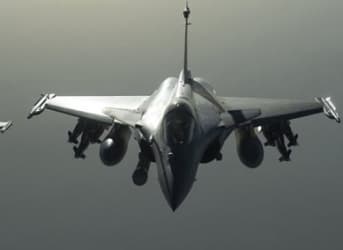The Paris tragedy clearly showed the world that the war on terror has gone global. If that had not already been made clear by terror bombings in Baghdad, Beirut, and the Russian airliner in recent weeks, it was hammered home by Paris.
Israeli media (debka.com) reports that no western intelligence picked up any signs of the attack plan. The grim message to the world: It could happen anywhere.
For any that still needed to be convinced, the attack also revealed that the greatest threat to the west comes from radical Islam, not from Iran, Russia, or China. Related: LNG Glut Set To Worsen Considerably Over Next 3 Years
That fact was confirmed last week in Venice where the Saudi’s, for the first time, met with Iranians amongst 20 different countries to create a common strategy for fighting the Middle East wars. Although the first meeting ended without any agreements, these two countries put traditional rivalry aside, at least for the moment, to discuss the greater threat. A better case for “the enemy of my enemy…” could hardly be made.
At the same time, the Saudi King’s planned visit to Moscow is aimed primarily at gaining some reassurance regarding its security. This would hardly take place if U.S. actions in the region were sufficient enough to guarantee that Saudi Arabia was secure enough under just the U.S. military umbrella.
According to Bloomberg, the current meetings ongoing in Turkey between the U.S. and Russia also confirm this new recognition, where Russia has suddenly gone from pariah to partner.
It makes one wonder, what the worth of the much-vaunted western intelligence that has been so politicized is given that it cannot any longer properly identify our main enemies.
At the same time, the tragedy in Paris may force the U.S. and its allies to redouble their military efforts in the Middle East and Central Asia, forestalling the long promised Asian pivot. Related: Oil Tankers Are Filling Up As Global Storage Space Runs Low
Strangely, while the tragedy emanated out of the Mideast war, from a part of the world that still produces more than forty percent of global oil production, the price of commodities continued to decline to a six year low.
That still took place despite the fact that Paris is promising a global military commitment against radical Islam and a much wider war across the globe. Western governments will be compelled to respond to their citizens’ demands for greater security.
As the great French writer Raymond Aron wrote about the Algerian Revolution, the Algerian rebels constant attacks on undefended citizens and officials steadily undermined the government’s authority to protect its citizens, finally leading to a French withdrawal and Algerian independence. Undoubtedly, that is the major goal of the Islamic State. Related: Oil Market Supply Imbalance Getting Worse, Not Better
If expanded war is likely, and there’s solid reasons to think so, than commodities could also be on their way up. Consider what happened during the Bush Middle East war years when oil prices hit a thirty year high in just five years, followed soon after by the commodities markets as a whole along with subsequent roaring inflation.
The current consensus on oil prices, led by Goldman Sachs, argues that oil prices will only recover slowly, and not until 2020 will we see an $80 per/barrel. But that projection, though it makes good sense in light of slowing global economic growth, leaves out the possibility of expanding global conflicts pressuring prices.
In the years ahead, prices could rise significantly because of the cutback in upstream investment occurring today. But the Paris attacks are a reminder that conflict has a way of creating surprises. The latest attacks are not enough to move the needle on oil prices, given excess supply still seen today. But a future attack that cuts off production somewhere around the world could cause a price spike that no one will be able to anticipate.
By Robert Berke for Oilprice.com
More Top Reads From Oilprice.com:
- Is The Oil Industry Really Subsidized?
- Saudis Planning For A War Of Attrition In Europe With Russia’s Oil Industry
- OPEC’s Strategy Is Working According To Cartel’s Latest Report


















Please explain why you think radical Islam and Iran are separate things.